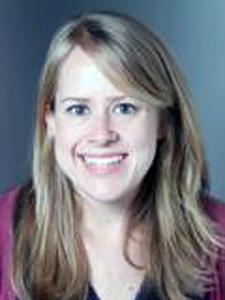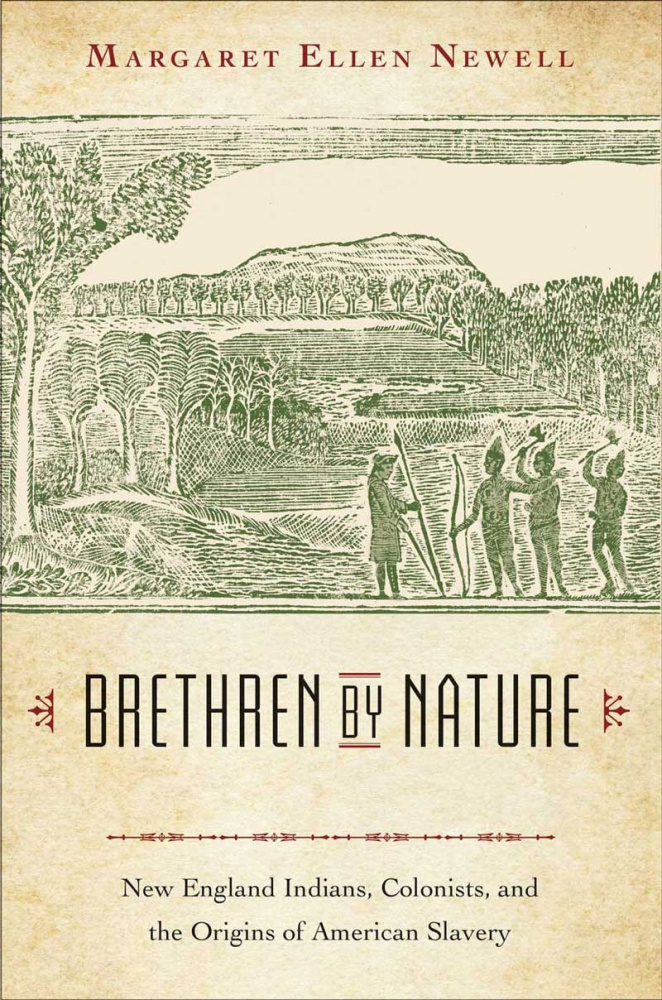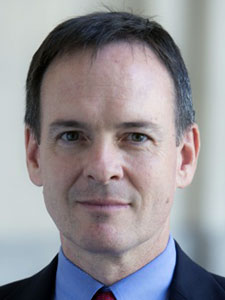|
Paul Beck
Professor Emeritus of Political Science, Sociology and Communication
"Big week for Kasich: Ohio's GOP hopeful needs a strong finish in New Hampshire"
"New Hampshire next after Iowa spoils went to best ground games, trumped media hype"
|
|
Margaret Newell
Associate Professor of History
"Colonial America Depended on the Enslavement of Indigenous People"
"America's Other Original Sin"
|
|
David Stebenne
Professor of History
"Onward Christian Soldiers?"
|
Mershon Memo is a weekly e-mail newsletter distributed by the Mershon Center for International Security Studies, a unit of the
Office of International Affairs at The Ohio State University.
|
|
|
Monday, February 15, 2016
3:30 p.m., 120 Mershon Center, 1501 Neil Ave.
 Michael Campana
Michael Campana is professor of hydrogeology and water resources management at Oregon State University and technical director of the American Water Resources Association. His expertise and interests include hydrogeology; hydrophilanthropy; integrated water resources management); water, sanitation, and hygiene in developing regions; water policy; and education. He founded and runs his own hydrophilanthropic foundation, the Ann Campana Judge Foundation. As WaterWired he blogs and tweets on water and related issues. Campana will recount his experience as project director for the South Caucasus River Monitoring Project, a model of collaboration and cooperation in a region where such traits have at times been in short supply. Read more and register at
go.osu.edu/campanam
|
Thursday, February 18, 2016
Noon, 120 Mershon Center, 1501 Neil Ave.
 Mike Chinoy
Mike Chinoy is senior fellow at the U.S.-China Institute at the University of Southern California, and the author of
Meltdown: The Inside Story of the North Korean Nuclear Crisis. He has served as a foreign correspondent for more than 30 years, including acting as CNN's senior Asia correspondent and as Beijing bureau chief. During that time he covered the 1989 events at Tiananmen Square, earning the CableACE, duPont and Peabody awards. He was also Hong Kong bureau chief for five years, and has visited North Korea 17 times. His talk will examine the current and future issues that threaten to further destabilize this critical region. Read more and register at
go.osu.edu/chinoym
|
Friday, February 19, 2016
3:30 p.m., 347 University Hall, 230 N. Oval Mall
 Cristina Bicchieri
Cristina Bicchieri is the S.J.P. Harvie Chair of Social Thought and Comparative Ethics, and professor of philosophy and psychology at the University of Pennsylvania. She is the director of the Behavioral Ethics Lab and the Penn Social Norms Consulting Group. Bicchieri works on social norms, their measurement and behavioral/field experiments on norm change, cooperation and fairness on social networks. Her most recent work looks at the role of trendsetters in social change, and how network structures facilitate or impair behavioral changes. Among her books are
The Grammar of Society: the Nature and Dynamics of Social Norms (Cambridge, 2006) and
Norms in the Wild: How to Diagnose, Measure and Change Social Norms (Oxford, 2016). Read more and register at
go.osu.edu/bicchieric
|
Monday, February 22, 2016
3:30 p.m., 120 Mershon Center, 1501 Neil Ave.
 Margaret Peters
Margaret Peters is assistant professor of political science at Yale University. She is also a resident faculty fellow at the Institute for Social and Policy Studies and a faculty fellow at the Leitner Program in Comparative and International Political Economy and at the MacMillan Center. Her research focuses broadly on international political economy with a special focus on the politics of migration. This project seeks to advance our understanding of migration by explaining the onset of waves, as well as the informational or social dynamics that magnify and perpetuate a migration wave once it emerges, through a new survey of Syrian refugees and other migrants in Jordan, Turkey, and Greece. Read more and register at
go.osu.edu/petersm
|
Thursday, February 25, 2016
3:30 p.m., 120 Mershon Center, 1501 Neil Ave.
 Kelly Greenhill
Kelly Greenhill is associate professor at Tufts University and chair of the Conflict, Security and Public Policy Working Group at Harvard University's Kennedy School of Government. She is author of
Weapons of Mass Migration: Forced Displacement, Coercion and Foreign Policy (Cornell); of
Sex, Drugs and Body Counts: The Politics of Numbers in Global Crime and Conflict (Cornell,
with P. Andreas) and
The Use of Force, 8th ed
(with R. Art). She is currently completing a cross-national study that explores why, when, and under what conditions, contested (or "extra-factual") sources of political information - such as rumors, conspiracy theories, and myths - materially influence the development and conduct of states' foreign and defense policies. Read more and register at
go.osu.edu/greenhillk2
|
Friday-Sunday, February 26-28, 2016
120 Mershon Center, 1501 Neil Ave.
The Nature of War: American Environments and World War II will examine American involvement in World War II through an environmental lens, focusing on how the war reshaped American landscapes, institutions, and environmental thinking, and how wartime developments helped shape the contours of postwar American environments and environmental thinking. It will also explore the ways in which American environmental endowments structured and delimited the U.S. war effort - that is, how nature and natural resources set the parameters for what is possible in total war. In exploring the case of World War II, the workshop will delve into broad questions of the relationships among environment, war, and security, both in the United States and globally. The aim is an edited volume that will be engaging enough for undergraduates and general readers but deep enough for scholars. Read more and register at
go.osu.edu/natureofwar
|
 |
 |
In
Brethren by Nature, Newell reveals a little-known aspect of American history: English colonists in New England enslaved thousands of Indians. Massachusetts became the first English colony to legalize slavery in 1641, and the colonists' desire for slaves shaped the major New England Indian wars, including the Pequot War of 1637, King Philip's War of 1675-76, and the northeastern Wabanaki conflicts of 1676-1749. When the wartime conquest of Indians ceased, New Englanders turned to the courts to get control of their labor, or imported Indians from Florida and the Carolinas, or simply claimed free Indians as slaves.
 Drawing on letters, diaries, newspapers, and court records, Newell recovers the slaves' own stories and shows how they influenced New England society in crucial ways. Indians lived in English homes, raised English children, and manned colonial armies, farms, and fleets, exposing their captors to Native religion, foods, and technology. Some achieved freedom and power in this new colonial culture, but others experienced violence, surveillance, and family separations.
Newell also explains how slavery linked the fate of Africans and Indians. The trade in Indian captives connected New England to Caribbean and Atlantic slave economies. Indians labored on sugar plantations in Jamaica, tended fields in the Azores, and rowed English naval galleys in Tangier. Indian slaves outnumbered Africans within New England before 1700, but the balance soon shifted.
Fearful of the growing African population, local governments stripped Indian and African servants and slaves of legal rights and personal freedoms. Nevertheless, because Indians remained a significant part of the slave population, the New England colonies did not adopt all of the rigid racial laws typical of slave societies in Virginia and Barbados. Newell finds that second- and third-generation Indian slaves fought their enslavement and claimed citizenship in cases that had implications for all enslaved peoples in 18th century America.
|
 |
Thursday, February 11, 2016
2 p.m., Mason Hall, 2nd Floor Rotunda, 250 W. Woodruff Ave.
Sponsored by East Asian Studies Center
 Robert Daly
Robert Daly was named as the second director of the Kissinger Institute on China and the United States at the Woodrow Wilson Center in August 2013. He came to the Wilson Center from the Maryland China Initiative at the University of Maryland. Prior to that, he was American director of the Johns Hopkins University-Nanjing University Center for Chinese and American Studies in Nanjing. Daly began work in U.S.-China relations as a diplomat, serving as Cultural Exchanges Officer at the U.S. Embassy in Beijing in the late 80s and early 90s. Daly will discuss economy, security and prospects for the future in U.S.-China relations.
Read more
|
Thursday, February 11, 2016
3:30 p.m., 120 Mershon Center, 1501 Neil Ave.
Sponsored by Department of History
 Dagomar Degroot
Dagomar Degroot is an environmental historian who bridges disciplines to investigate how people confront changes in the natural world. He has written a book, currently in peer review, that furnishes the first detailed analysis of relationships between climate change and the "Golden Age" of the Dutch Republic. His ongoing projects trace the human consequences of 17th century Arctic cooling; investigate connections between climate change and early modern conflict; and identify how people have responded to environmental changes in space. Degroot is the founder of
HistoricalClimatology.com, a website that attracts more than 100,000 viewers annually, and the co-founder of Climate History Network, an organization with more than 150 multidisciplinary members. In this lecture, Degroot examines whether climatic changes during the "Little Ice Age" from 1450 to 1850 led to more societal conflict. Read more and register at
go.osu.edu/degrootd
|
Thursday, February 11, 2016
7 p.m., Archie M. Griffin Ballroom, Ohio Union, 1739 N. High St.
Sponsored by Environmental Professionals Network
 M. Sanjayan
M. Sanjayan is a leading global conservation scientist, writer and an Emmy-nominated news contributor focused on the role of conservation in improving human well-being, wildlife and the environment. He serves on Conservation International's senior leadership team as executive vice president and senior scientist. Previously he was the senior scientist for The Nature Conservancy. His scientific work has been published in journals including
Science, Nature, and
Conservation Biology. He is a Catto Fellow at the Aspen Institute. With remarks on "
Central Ohio's Contributions to Protecting Earth's Environments and Peoples" by Tom Stalf, CEO of the Columbus Zoo and Aquarium. The event is free but
registration is required.
|
Friday, February 19, 2016
3:30 p.m., 1080 Derby Hall, 154 N. Oval Mall
Sponsored by Department of Geography
 Matthew Zook is professor of geography at University of Kentucky. He studies how the geoweb is produced order to better understand where, when, and by whom geo-coded content is being created. As an economic geographer Zook also studies study how flows of material goods in the global economy are shaped by immaterial flows of information. His interest is in the range of ways in which material and virtual flows are intertwined: sometimes complementary, sometimes contradictory, but always central to the evolution of spatial relations in the economy. In this talk, Zook will review the power-laden ways in which social media-derived data represent the cultures of cities as well as the potential problems in using these data for urban research and decision-making. Read more Matthew Zook is professor of geography at University of Kentucky. He studies how the geoweb is produced order to better understand where, when, and by whom geo-coded content is being created. As an economic geographer Zook also studies study how flows of material goods in the global economy are shaped by immaterial flows of information. His interest is in the range of ways in which material and virtual flows are intertwined: sometimes complementary, sometimes contradictory, but always central to the evolution of spatial relations in the economy. In this talk, Zook will review the power-laden ways in which social media-derived data represent the cultures of cities as well as the potential problems in using these data for urban research and decision-making. Read more |
 |
 |
|
|
| Paul DeBell looks over Budapest at twilight. He was there to research his dissertation topic, "Outrage, Disgust, and Derailed Democracy in Hungary." |
Mershon Center offers grants for research, study abroad
Each year, the Mershon Center for International Security Studies holds a competition for Ohio State faculty and students to apply for research grants and scholarship funds.
Applications for
Faculty Research and Seed Grants and
Graduate Student Research Grants must be for projects related to the study of national security in a global context. We are also interested in projects that emphasize the role of peace-building and development; strengthen the global gateways in China, India and Brazil; relate to campus area studies centers and institutes; or address the university's Discovery Themes of health and wellness, energy and the environment, and food production and security.
In recent years the center has funded several dozen faculty and graduate student research projects with grants for travel, seminars, conferences, interviews, experiments, surveys, library costs, and more. To learn about the types of projects being funded, please see faculty project summaries on the Mershon Center website under
Research and graduate project summaries in past
Annual Reports.
The Mershon Center has also established
International Security Scholarships for Undergraduate Theses and Study Abroad to support undergraduates whose professional career plans lie in the field of international security and who would benefit doing research for an undergraduate thesis or studying in a foreign country. Applications will be evaluated by an interdisciplinary review committee that will make recommendations to the director of the Mershon Center. Scholarship amounts typically range from $2,000 to $3,000.
Application forms and instructions for all Mershon Center grants and scholarships can be found in the
Grants section of the Mershon Center website. The deadline for all applications is
5 p.m. on Monday, February 22, 2016.
|
Outreach and Engagement Recognition Awards
The Offices of Outreach and Engagement, International Affairs, Service-Learning, Student Life and Undergraduate Education have joined together to recognize faculty, staff, students and community partners with the University Outreach and Engagement Recognition Awards program. Awards will be given in the community engagement, international engagement, service-learning, staff, student, student group and community partner categories. A total of $21,000 will be awarded. Applications are due
February 16, 2016.
|
|
|